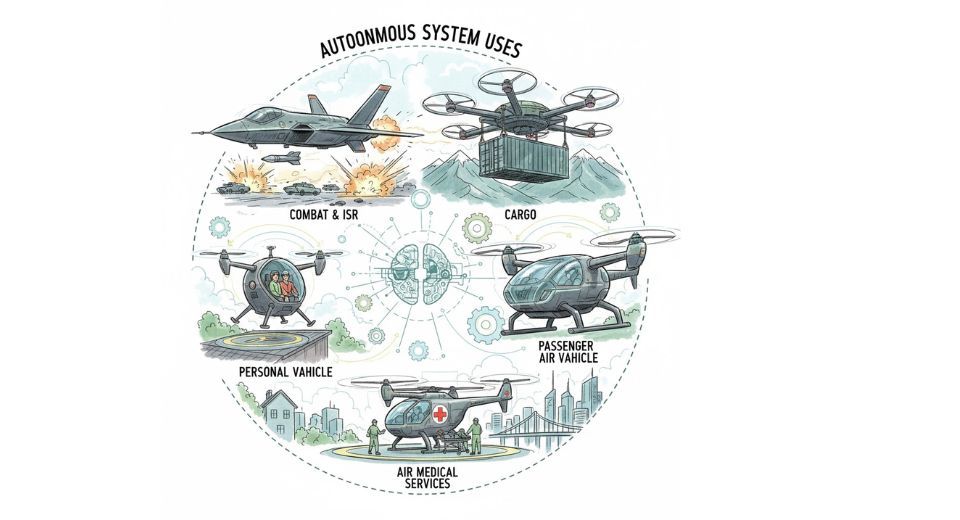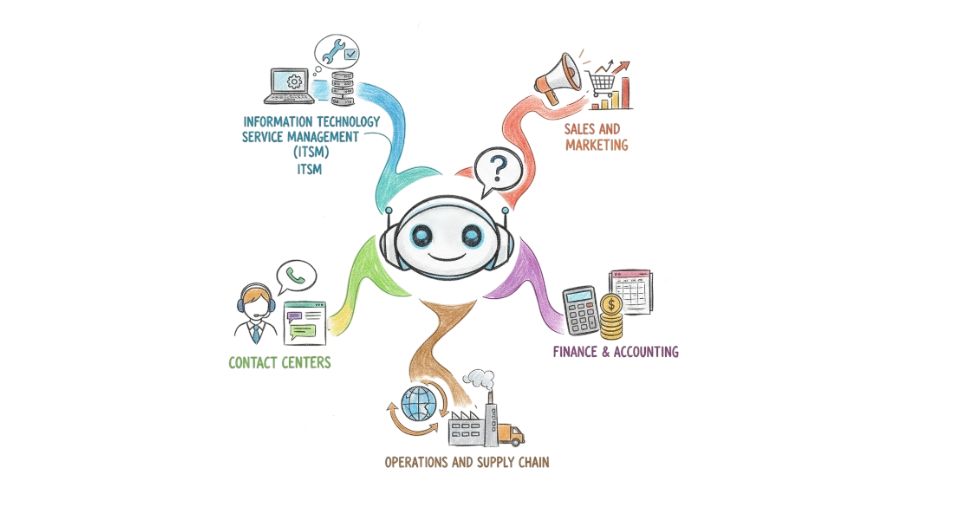MARKET OVERVIEW
The global online travel agency market will bring revolution in travel and tourism industry organization and direction, which will redefine tourists to find, organize and book their visits in future. This online platform has already prepared traditional travel services for more convenient and consumer-friendly models, and its development beyond the existing structure will be characterized by adapted experiences, growing emerging technologies, and will be characterized by changing consumer behavior. With growing expectations of customers and changing digital behaviors, the role of online travel agencies will far transcend ticket purchases and hotel bookings.
In the immediate future, the global online travel agency market will start venturing into solutions beyond convenience. It will be working on forming closer bonds with travelers, not just presenting options, but customized recommendations based on lifestyle, mood, sustainability interests, and history. AI-based algorithms, already functioning in customer suggestions, will become even more intuitive so that platforms can develop travel planning spaces that are personal, not transactional. These agencies will start becoming constructs of ecosystems addressing all aspects of the journey, from the instant of inspiration to post-travel outcomes.
The future phase of development will be integrating virtual and real-life experiences. Travelers could start the booking process within a virtual replica of their destination, navigating hotels, environments, and local activities within augmented surroundings. Although developing, this technology will soon have mainstream application within the global online travel agency market, providing an appraisal of trips that not just builds trust but also accelerates the decision-making process. Visual interaction will be an increasingly important aspect of internet travel sites, transforming flat listings into emotionally stimulating previews.
Another major direction the global online travel agency market will follow is towards localized and hyper-personalized services. Although the existing model does provide regional filters and multilingual capabilities, the models that emerge will gravitate towards higher levels of cultural sensitivity and on-ground service tie-ups. Platforms will link tourists with locally-based guides, tailored event experiences, and small business services to create richer experiences that exceed typical packages. This will present new opportunities for local tourism suppliers who had until now stayed off the digital map.
Sustainability will be more than a marketing slogan. As green awareness comes to play a determining role in travel, online travel sites will follow suit by providing transparency regarding carbon footprints, eco-certifications, and green accommodation options. They will not only provide choices but actually enlighten and steer consumers towards being more responsible. The global online travel agency market will start to function as a bridge between sustainable travel trends and reality by providing low-impact alternatives and promoting carbon-offset schemes at the point of checkout.
As trust and digital security grow in significance, data control and privacy management will be top of mind. Sites will have to be able to reassure users that not only is their data safe but it is being applied in ways that actually add value to their trip planning without crossing the privacy line. This will be gained through openness, rather than taken for granted through ease.
The global online travel agency market will become an even more deeply networked, tech-driven ecosystem that will be as much a tool for travel as it will be a companion for the entire trip. Its destiny will be influenced by authenticity, emotional connection, and an increased understanding of what matters most to travelers.
Global online travel agency market is estimated to reach $404.67 Million by 2032; growing at a CAGR of 6.2% from 2025 to 2032.

GROWTH FACTORS
The global online travel agency market will see a steady evolution as technology continues to revolutionize the way consumers plan and book their travel. As the internet penetrates deeper into urban and rural areas, and mobile phones become more affordable and widespread, more consumers will shift towards using online tools to plan their vacations. Book flights, hotels, or entire vacation packages in a few clicks on a screen will be no longer a perk but a basic expectation. This is also the result of people wanting easy, customized travel experiences in greater and greater numbers. The modern traveler no longer wishes to blindly follow a preset itinerary. Instead, they seek recommendations from their own tastes, budgets, and timetables, something which OTAs are beginning to do through easy-to-use applications and AI-driven recommendations.
Even with these developments, the global online travel agency market has some obvious challenges. One major challenge will be the increasing competition in the industry. With more players in the space, incumbent companies will have to lower their prices while ensuring quality of services, putting a strain on their margins. OTAs also rely significantly on third-party service providers like airlines, hotels, and tour operators. Any tardiness, cancellation, or bad customer service by these partners can reflect adversely on the reputation of the OTA, even when the fault is not within their control. This type of dependency weakens the business model to some extent and requires increased cooperation and more efficient risk management practices.
But there is also hope. More and more travelers are seeking beyond standard packages and desire something special, whether it is experiencing local culture, staying in an environmentally friendly establishment, or unusual places to visit. This urge for unique experiences opens up a new avenue for OTAs to differentiate by providing something beyond price comparisons. They will have the ability to customize services to various customer segments and add features that are aimed at user engagement, flexibility, and live support. By doing so, they can strengthen loyalty and reach untapped markets.
Over the next few years, the global online travel agency market will not only grow due to access through digital means but also due to the evolving nature of travel itself. Consumers wish to have greater control over how they travel around the world, and OTAs, if they evolve responsibly, will be the epicenter of this transformation.
MARKET SEGMENTATION
By Service Type
The global online travel agency market has changed the way people plan and book their journeys, which offers a convenient and accessible platform that meets a variety of travel requirements. With the growing penetration of internet services and widespread use of smartphones, online travel agencies have become solutions for travelers around the world. They offer users the ability to compare prices, detect destinations, read reviews and booking within minutes. One of the major areas within the global online travel agency market is division by service type, including a wide range of offerings that complete both individual and corporate passengers. Of these, housing booking is greatly increased, accounting for an estimated $ 71.49 million. This service will continue to be strong as people prefer to book hotels, hostels and homestands through digital platforms instead of traditional methods. The ability to see real -time availability, guest response reading and compare facilities will keep users loyal and loyal to these services.
Transport booking is another major segment that supports overall travel experience. Whether it is a centralized platform to manage flights, trains, or buses, transport needs will make the entire process easier for passengers. This category will continuously continue to attract users who give importance to quick access to passage options and competitive fares. Additionally, holiday packages are becoming popular, especially in people looking for a solution ready for their holiday plans. These packages often include flights, housing and guided tourism, appealing to those who prefer stress-free experience. The demand for customized packages will increase as online travel agencies begin to offer more flexibility in terms of destinations, duration and activities.
Travel insurance is another important offering, as more passengers are becoming aware of the need for protection against unexpected situations. This section will increase as people seek security trap during their journey. Corporate travel services are also expanding, which provide equipment to manage the staff efficiently. As companies take more care about travel budget and employee safety, this service type will be given more attention. Finally, travel counseling services will continue to play a useful role for those who require expert advice before making travel decisions. This can affect personal touch, even in a digital format, customers' satisfaction and loyalty. As more travelers seek recommendations and curate experiences, a stable demand will appear in this section.
By Platform
The global online travel agency market has become a fundamental aspect of how individuals book and plan their travel. With the progression of technology impacting daily life, the manner in which people engage in travel has also been impacted. One of the most important alterations is the way travel services are accessed. In the past, accessing travel arrangements involved direct communication with agents or a visit to physical offices. That is now a thing of the past. Now, online platforms have enabled individuals to reserve tickets, hotels, and even complete trips from the comfort of their homes. These websites will remain a major player in determining the future of the travel sector in the future. Of these, mobile apps, websites, and desktop programs are the primary means by which travelers utilize online travel agencies.
Mobile apps have become a convenient option for most travelers, especially between young generations. As the phones have become more cheap and internet connectivity has expanded to far-flung areas, people are using applications to organize their visits. Not only are mobile apps simple to navigate, they also provide facilities such as real-time alerts, location-based services and safe payment. People will remain a top option for booking and updates on travel apps, with spending more time on their mobile phones.
Websites remain among the most popular platforms in online travel. Most users continue to use websites due to their larger screens, improved layout, and convenience of comparing options. Websites provide the benefit of scrolling through several tabs, reading in-depth reviews, and updating reservations with greater visibility and control. Users who like careful planning and research will continue to find websites valuable. They are also more likely to be trusted with booking complex travel like group travel or extended overseas trips.
Desktop programs, while less accessed than mobile applications or websites, remain a presence in the global online travel agency market. They are predominantly utilized in business environments or by regular travelers who appreciate speed, predictability, and a known interface. They are usually tuned for performance and used when internet access is constant and the activity is detail-sensitive. Although their usage might not grow as rapidly as other platforms, they will continue to be needed for certain user groups.
By End User
The global online travel agency market will continue to undergo dramatic transformations based on the varied needs of its end users. With more and more individuals across the globe having access to smartphones and the internet, booking travel online will be the norm. The global online travel agency market, viewed through the eyes of its prime end users Leisure Travelers, Business Travelers, Education and Research Travelers, and VFR (Visiting Friends and Relatives) Travelers demonstrates how traveling behavior will shape digital booking trends.
The holiday passengers will continue to carry forward the demand in the global online travel agency market. The individuals will look for relaxation, cultural immersion and adventure, and they will see online places for convenience, options and reviews before committing. OTAS will retaliate by providing package offers, final-matches and flexible booking processes that appeal for spur-of-the-comments as well as planned holidays. With services such as personal suggestions and hassle -free cancellation policies, more users will have confidence in these sites to manage their travel system.
For business passengers, speed and efficiency will be priority. The OTA must streamline the booking process, provide a multi-city travel option, and offer real-time updates that allow professionals to stay on time. Business workers can also start using these platforms to control the travel budget, monitor expenses and interact on rates. With corporate travel in the sink, digital equipment that makes business travel easier and streamlines more will become increasingly popular.
Educational and research travelers, though less in number, will constitute a significant segment of the global online travel agency market. Students and academics visiting for conferences, research studies, or academic study visits will also depend on OTAs for cost-effective and flexible travel solutions. They usually seek low-cost airfares, brief stays, and access to public transport. Web-based sites addressing their individual needs will inevitably receive greater attention from this segment.
VFR travelers will continue to drive demand, particularly in areas where migration and diaspora communities play an important role. These travelers tend to book trips during holidays, family occasions, or significant milestones. Their booking tendencies could be more price-conscious, and they might prefer sites that provide packaged services like airfare and accommodation bundled together. OTAs which cater to these necessities and offer easy-to-use tools will secure repeat usage.
Each category of traveler brings a special dimension of demand to the online travel space. Knowing how they behave will enable platforms to expand by providing significant, simple, and effective travel options. With advancing technology, so will the capacity of these agencies to cater to all travelers.
|
Forecast Period |
2025-2032 |
|
Market Size in 2025 |
$292.54 million |
|
Market Size by 2032 |
$404.67 Million |
|
Growth Rate from 2025 to 2032 |
6.2% |
|
Base Year |
2024 |
|
Regions Covered |
North America, Europe, Asia-Pacific, South America, Middle East & Africa |
.
REGIONAL ANALYSIS
The global online travel agency market will hold to revel in shifts shaped via nearby needs and virtual behavior. Based on geography, this marketplace is cut up into North America, Europe, Asia-Pacific, South America, and the Middle East & Africa. North America consists of the USA, Canada, and Mexico, every with its personal on line behavior and degree of technological access. The United States will probably continue to be a pacesetter because of excessive net penetration and a population that actively seeks travel reviews thru on line systems. Canada and Mexico are anticipated to comply with comparable traits, even though with special degrees of investment in virtual travel infrastructure.
In Europe, the online travel agency market stretches across the United Kingdom, Germany, France, Italy, and different countries collectively called the Rest of Europe. These nations will show continued reliance on OTAs due to full-size cellphone usage and a strong subculture of global journey. The UK and Germany, especially, are predicted to maintain their momentum inside the OTA space, with purchasers looking for fast, obvious, and customized booking options. Meanwhile, Southern European countries like Italy will slowly seize up as more customers start to trust virtual platforms for his or her journey desires.
The Asia-Pacific has significant potential for expansion. The region includes India, China, Japan, South Korea and the rest of the Asia-Pacific. In India and China, sheer population size will run online booking, especially more people reach affordable smartphones and reliable internet connections. Japan and South Korea will continue to support advanced travel booking services, with their technology-loving population, proceed to maintain OTA with the demand for accurate, speed and user friendly design. Other parts of Asia will grow gradually, there is a possibility of promoting OTA use with improvement in the infrastructure of the Internet.
South America, Brazil, Argentina and other neighboring countries, show a mixed motion. Brazil will lead with a tilt towards online purchase, including travel booking with a small population. A slow growth in Argentina and the rest of South America can be seen, but an increase in awareness about digital services will help the region progress in adopting online travel solutions.
The Middle East and Africa consists of GCC countries, Egypt, South Africa and other nations in the region. While some parts of the region are still developing their digital appearance, countries such as UAE and Saudi Arabia will run the future OTA activity due to government initiative in tourism and digitization. South Africa and Egypt are also expected to see more OTA engagement as digital reach becomes more common. Each of these fields will shape the global online travel agency market in its own way, affected by technology, consumer behavior and regional travel demands.

COMPETITIVE PLAYERS
The global online travel agency market will continue to shape the plan, book and the way of traveling for people. As the technique becomes more accessible, users will rely on digital platforms not only to search for destinations but also to organize full visits from one place. This market is inspired by the feature that provides - all possible with some clicks compared to flight prices, hotel availability, customer reviews and even local experiences. While traditional travel agents once led, online travel agencies have consistently taken over due to their user-friendly approach, real-time updates and round-the-clock access.
Booking Holdings Inc. These platforms have created a customer trust by providing comprehensive inventory, price guarantee and easy cancellation options. Airbnb, Inc. Has introduced a unique approach, offering houses and shared places that appeal to passengers just in search of more than hotels. Meanwhile, Makemytrip Limited and Yatra Online, Inc. For example, brands continue to increase their presence in emerging markets, especially in countries like India, where the demand for domestic and international travel is expanding. Trivago N.V. And platforms such as kayak.com focus on search and comparison, giving users the best deals in many sources, while others such as AGODA Company PTE. Ltd. and Skyscanner Ltd. Competitors attract users in search of pricing pricing and regional deals.
The future of the global online travel agency market will not rely on offering only low prices or comprehensive selection. Instead, privatization and user experience will become defined factor. Agencies will use data to understand passenger behavior and recommend sewn options - whether it is a popular city or a cool beach city over a bundling hotel, which lives with a car rental. The push for uninterrupted mobile experiences will also increase, users will be expected to book, reset, or cancel when leaving.
Players like Orbitz Worldwide, LLC, Cleartrip Private. Ltd., and lastminute.com group will need to keep adapting, especially new tools such as AI chatbots and dynamic pricing models. The competition will be terrible, and users will benefit from this continuous push to improve. In the coming years, convenience, trust and personalization will be in the center of the global online travel agency market, making it a place that will develop to match the rapidly changing expectations of modern travelers.
Online Travel Agency Market Key Segments:
By Service Type
- Accommodation Booking
- Transportation Booking
- Holiday Packages
- Travel Insurance
- Corporate Travel Services
- Travel Consultation Services
By Platform
- Mobile Applications
- Websites
- Desktop Applications
By End User
- Leisure Travelers
- Business Travelers
- Education and Research Travelers
- VFR (Visiting Friends and Relatives) Travelers
Key Global Online Travel Agency Industry Players
- Booking Holdings Inc.
- Expedia Group, Inc.
- Trip.com Group Limited
- Airbnb, Inc.
- MakeMyTrip Limited
- Traveloka
- eDreams ODIGEO
- Yatra Online, Inc.
- Trivago N.V.
- Lastminute.com Group
- Kayak.com
- Agoda Company Pte. Ltd.
- Skyscanner Ltd.
- Priceline.com LLC
- Orbitz Worldwide, LLC
WHAT REPORT PROVIDES
- Full in-depth analysis of the parent Industry
- Important changes in market and its dynamics
- Segmentation details of the market
- Former, on-going, and projected market analysis in terms of volume and value
- Assessment of niche industry developments
- Market share analysis
- Key strategies of major players
- Emerging segments and regional growth potential








 US: +1 3023308252
US: +1 3023308252






